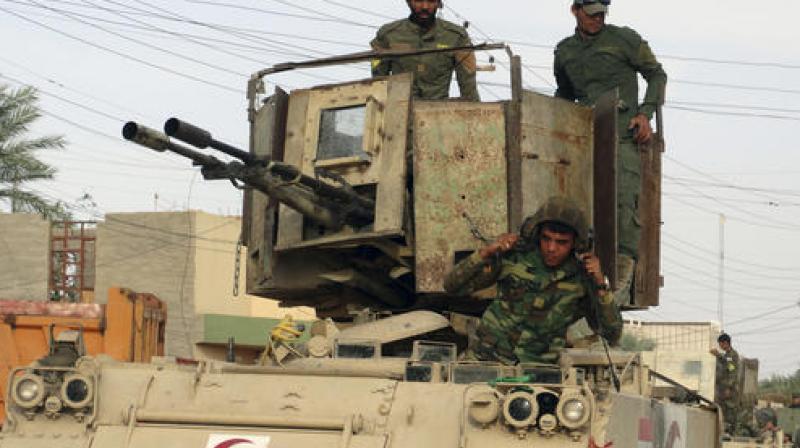Iraqi units clear Mosul buildings after advances, IS attacks

Mosul: Iraqi special forces cleared buildings on Saturday in neighbourhoods they entered in eastern Mosul a day earlier, after pushing out Islamic State militants in their drive to take back the city.
Fighting continued in the morning, with both sides firing mortars and automatic weapons on each other's positions, while the Iraqi troops also responded with artillery. Clashes were most intense in the al-Bakr neighbourhood. Sniper duels played out from rooftops in the mostly residential areas, where the majority of buildings are two stories high.
"Daesh is in the city center and we must be very careful as our forces advance," said Maj Gen. Sami al-Aridi of the Iraqi special forces, using the Arabic acronym for the IS group. With more densely packed neighbourhoods ahead, his forces will be challenged to avoid both higher military and civilian casualties.
As he spoke, dozens of civilians in the Tahrir and Zahara districts emerged from their homes, some of them carrying white flags, and headed toward the troops to be evacuated from the battlefield.
The special forces launched a two-pronged assault deeper into Mosul's urban center on Friday, unleashing the most intense street battles against IS militants since the offensive to retake the city began nearly three weeks ago.
At least seven special forces troops have been killed in the fighting.
More than 3,000 Iraqi troops took part in the assault under heavy US-led coalition air support, but the pace of the fight also slowed as Iraqi forces moved from fighting in more rural areas with few civilians to the tight, narrow streets of Mosul proper.
At least seven suicide attackers in explosives-laden vehicles attacked troops on Friday, five of whom were killed before nearing their targets.
The operation to retake Mosul is expected to take weeks if not months. Moving from neighbourhood to neighbourhood in house-to-house battles through warrens of booby-trapped buildings is time consuming and Iraq's military has repeatedly opted for slower operations in an effort to minimize casualties.
Some 1 million civilians still remain in the city, complicating the advance. IS militants have driven thousands of residents deeper into the city's built-up areas to be used as human shields, while hundreds of others have fled toward government-controlled territory and thousands have headed west into Syria.
Mosul is the last major IS stronghold in Iraq, and expelling the militant group from the city would be a major blow to the survival of its self-styled "caliphate" that stretches into Syria.

